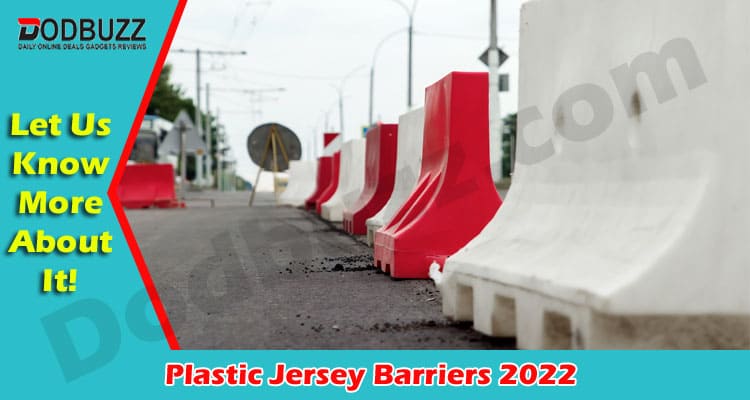If you’re looking for a way to control crowds and direct traffic, plastic jersey barriers might be the perfect solution for you. The crash barrier systems have significant application in roadways, including roads, highways & bridges, airports, construction zones, and railways.
But before you buy any, you’ll want to know the answers to some of the most common questions about a plastic jersey barrier.
Here are some of the top FAQs asked about jersey barriers:
1) What are Plastic Jersey Barriers Made Of?
These barriers are usually made from high-density polyethylene (HDPE) or recycled plastic.
HDPE is a solid and durable plastic that is weather-resistant and can stand up to a lot of wear and tear. It makes it the perfect material for barriers exposed to rough weather conditions such as those used outdoors.
Jersey barriers are also available in recycled plastic varieties. These barriers are made from post-consumer plastics that have been collected and reprocessed into new products. Recycled plastic barriers are a great eco-friendly option as they help reduce the amount of waste going to landfills.
You can select the suitable material for your needs based on the environment and conditions used by the barriers.
2) What Size Do Jersey Barriers Come In?
Jersey barriers come in various sizes, but the most common size is 42” high x 72” long and 32” high x 72” long. This size is perfect for controlling crowds and traffic. However, other sizes are available depending on your needs.
If you need a custom size, many manufacturers offer this option. They will create a perfect size barrier for your specific application.
There are also mini jersey barriers two feet high by four feet long. These barriers are significant for small spaces and tight areas. For example, you might use them to block off a section of your yard or create a safe space for kids to play.
You can choose the size of your barrier based on the area you need to block off and the number of people you need to control.
3) What Do Plastic Jersey Barriers Cost?
The cost of barriers can vary depending on the size, material, and quantity you need.
For example, a 32”x 72” HDPE barrier will cost around $400. However, if you need a custom-sized or recycled plastic barrier, the price will be higher.
The price also goes up if you need a large number of barriers. Many manufacturers offer discounts for bulk orders, so it’s best to buy in larger quantities if possible.
You can get a quote from different manufacturers to find the best price for your needs. When considering the cost of plastic these barriers, be sure to factor in shipping and installation costs.
Shipping costs usually start around $350 per order, and installation costs will vary depending on the size and number of barriers you need.
4) How Are Plastic Jersey Barriers Installed?
Most jersey barriers are installed by bolting them to the ground. It is done by drilling holes into the ground and then bolting the barriers down.
This method is secure and ensures that the barriers will not move or be knocked over. However, it does require some tools and equipment to drill the holes.
Another installation option is to use interlocking feet. The feet are inserted into the ground, and the barriers are placed on top.
This installation method is quick and easy, and it does not require any tools. However, it is not as secure as bolting the barriers down.
You can choose the installation method based on your needs and the area you are using the barriers.
5) What Are Plastic Jersey Barriers Used For?
These barriers are used for various applications, including crowd control, traffic control, and safety barriers.
They are often used at concerts, parades, sporting events, and political rallies.
Jersey barriers can also be used in construction zones, parking lots, and event venues. Jersey barriers are a versatile and affordable option for many applications. You can use them to control crowds, traffic, or much more. They are a great way to keep people safe and organized.
6) How Durable Are Plastic Jersey Barriers?
Jersey barriers are very durable and can withstand any wear and tear. They are made from high-quality materials resistant to harsh weather, fading, and cracking.
The barriers will last for many years with proper care.
Some manufacturers offer a warranty on their barriers, so be sure to ask about this when shopping for barriers.
When choosing a barrier, be sure to consider its durability and how it will hold up over time. Jersey barriers are a durable option that will withstand many uses.
Conclusion
Plastic jersey barriers are a great way to improve safety and security at your next event. By following the tips above, you can ensure that your event goes off without a hitch.







